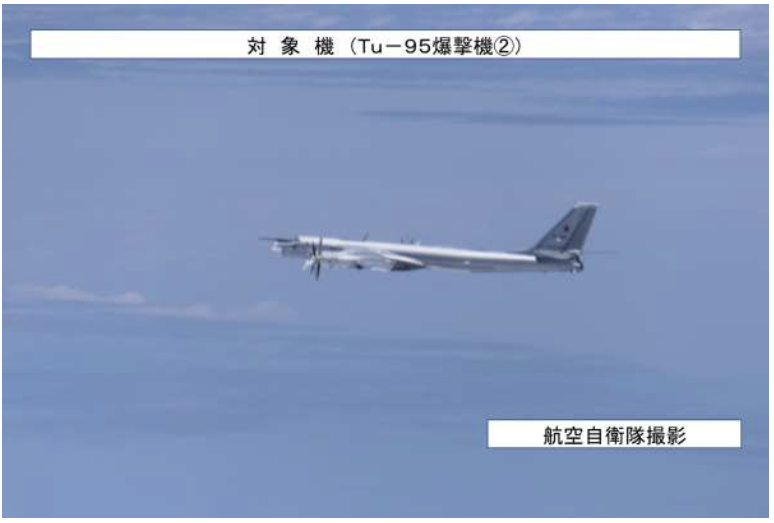Russian Bombers Conduct 10-Hour Flight Over Sea of Japan, Entering Japan’s Air Defense Zone Three Times
Two Russian Tu-95 bombers, along with two fighter jets, conducted a 10-hour flight over the Sea of Japan on Tuesday, entering Japan’s Air Defense Identification Zone (ADIZ) three times. In response, Japan scrambled its fighter jets.
According to a release from Japan’s Joint Staff Office on Wednesday, the Russian aircraft flew in from Russia, heading east over the Sea of Japan. They changed course off the Oki Islands archipelago and headed back north. Later, the bombers, again escorted by two fighter jets, flew from Russia to an area west of Hokkaido before turning north near Okushiri Island, which lies 12 miles west of Hokkaido. They then flew parallel to Hokkaido before changing course off Cape Kamui, heading back to Russia.
On a third occasion, the bombers and their escorts flew toward Ishikawa Prefecture on Honshu, changing course off the Noto Peninsula before heading home. Throughout these manoeuvres, the Japan Air Self-Defense Force (JASDF) responded by scrambling for their own aircraft. Another aircraft, suspected to be Russian, was also seen flying near Hokkaido and Honshu.
The Russian Defence Ministry stated on Tuesday that the Tu-95MS bombers performed a planned flight over neutral waters in the Sea of Japan, lasting 10 hours. The bombers were escorted by Su-35S and Su-30SM fighter aircraft from the Russian Aerospace Forces. At certain points along the route, foreign fighter jets also escorted the Russian bombers. The ministry emphasized that the flight adhered to international airspace rules, noting that Russian long-range aviation regularly flies over international waters in various regions, including the Arctic, North Atlantic, Black Sea, Baltic Sea, and Pacific Ocean.
This flight occurred less than a week after Russia and China conducted a joint bomber flight in the Alaska ADIZ. Both nations claim their bomber flights are routine training exercises and not directed at any specific country. However, Japan views these flights as provocative displays of military power. Similarly, the U.S. and European countries consider Russian bomber flights near their borders to be provocative actions.


Comments
Post a Comment